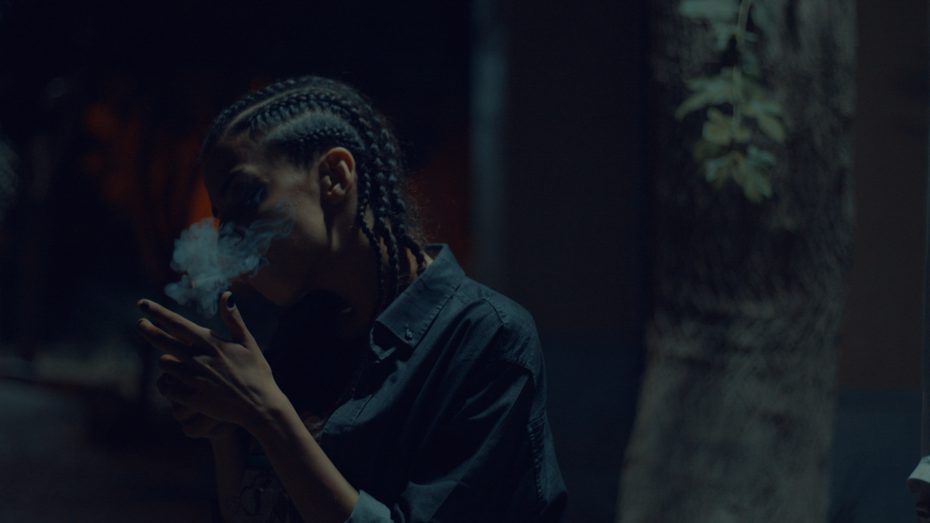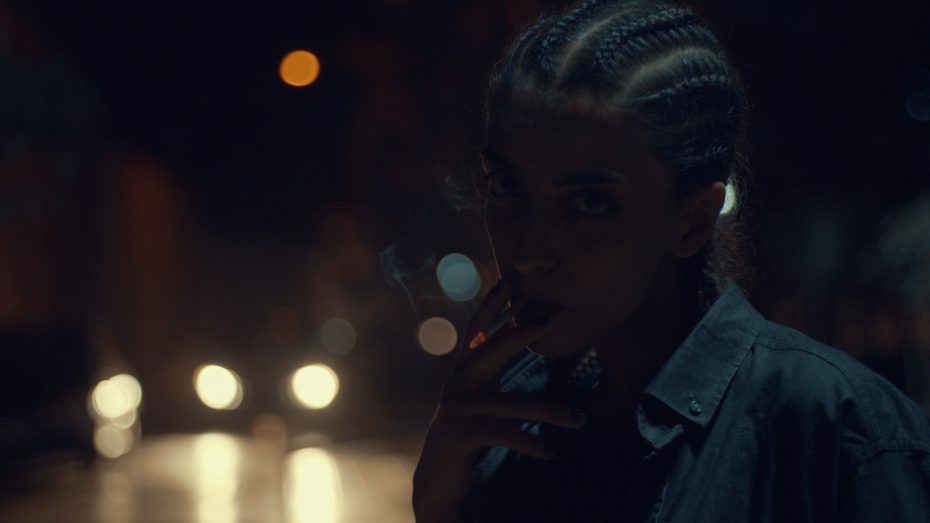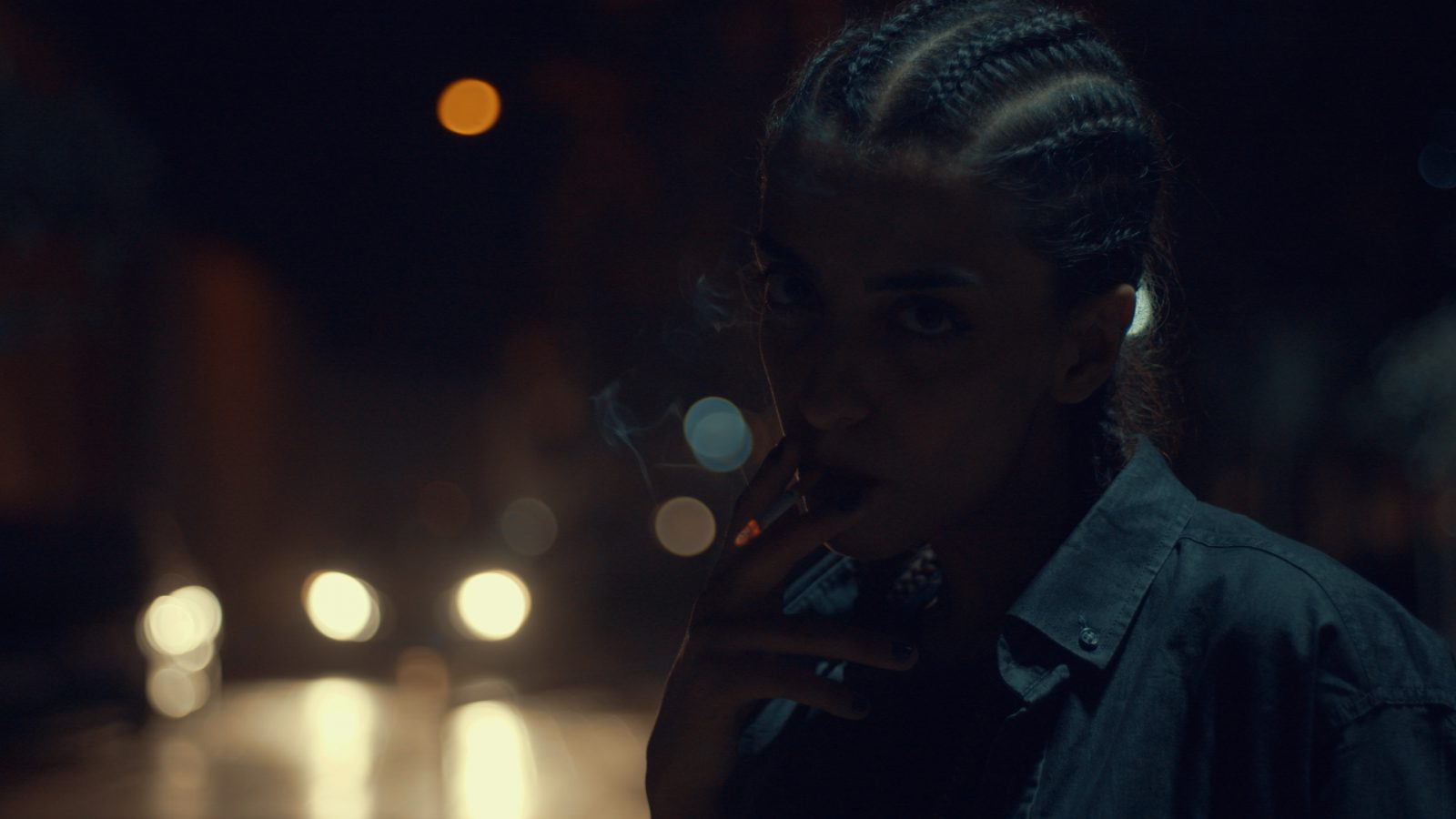Alexie Ivanovich – The Sounds Of Jolfa
UPA Andreas Robbins Scholarship winner Alexie Ivanovich, Interviewed by Deniz Ataman

Underground hip hop in Iran runs deeper than you’d think – despite its Post-Islamic Revolution landscape where non-traditional music could land an artist in jail. Yet this censorship fuels the rapidly growing hip hop scene today. Iran’s music culture has been whittled down to what the government deems as essential: traditional compositions rooted in Quranic references. Of course, there’s certainly a respect for the study and performance of Iran’s regional musical dialects, as the country is home to a diverse ethnic population: Kurds, Azerbaijanis, Turkic people and Armenians among others. Each group has a story to tell through traditional music, enhancing the country’s cultural fabric. But if you open manholes and climb down ladders into subterranean tunnels, you’ll find Alexie Ivanovich hard at work delivering her newest album, Jolfa, to the world.
For the Tehran-based producer and rapper, Alexie is her identity and music is her chosen path. Yet, her artistry and expression deviate far from what her country expects out of an Iranian musician. If she does explore tradition in her music, it’s through juxtaposing the legal with the illegal. In her music video, Bang, she raps outside of a mosque with a scarf loosely draped around her head like a hoodie. She sits cross legged in what could look like a moment of prayer (and maybe it is) and expresses her frustration towards the censorship she faces as a woman, a producer and an artist. Each of these identities are part of Alexie’s story in her first instrumental album, Jolfa, named after her hometown, an Armenian quarter of Isfahan. The vocal album will also be released, but the instrumental is a testament to her skills as a software engineer-turned-producer. She sought mentorship through the Underground Producers Alliance (UPA) under Raz Mesinai aka Ghost Producer aka Badawi. And it wasn’t an easy process.

Photo by Peyman Alikhani
When we scheduled the interview, the government shut off the internet around Tehran due to protests. Unfortunately, disconnecting the web is a common occurrence by the government attempting to control public communication and interactions. I watched Alexie on my computer screen speak to me on Skype with a hoodie and headphones pacing around a local park after dark. This is where she shared her story with me about what it took for her to produce Jolfa. She’s got a few heavy factors working against her: the government’s censorship of non-traditional art and a patriarchal underground hip hop scene.
As a female artist, highlighting gender often feels like an exhausting political statement. But in a male-dominated industry in Iran, female producers are by the handful, if at all, so Alexie’s gender is certainly worth mentioning. Although Jolfa comes from Alexie’s personal struggles, her brutal honesty is a beacon to female rappers in the game to produce their own work and ultimately trust themselves.
With the help of the UPA, she empowered herself to design the soundtrack of her life in her country which features field recordings of riots (Jokers Everywhere) and distorted beats (Out of Service) to set the stage for her lyrics. I was fortunate for the forcefield in the park that sustained Alexie’s internet connection, allowing us to share her interview below.

Photo by Peyman Alikhani
Let’s talk about your writing style first. Where do you pull inspiration from?
I was obsessed with writing and hip-hop as a teenager and it was an inseparable part of my life in different stages. Once I decided to stay in Tehran to build an environment for myself, I began writing about things that happened to me, things I saw in society, things I saw in my friends and people – they mostly come from experiences and issues I’m facing in my own country. Most of my coworkers are male rappers and producers. They don’t accept you first as a woman and you face immediate rejection. Here we have few girls, both in rapping and production. I always get more inspired when I hear phrases that imply “incapability” based on stereotypes such as gender, nationality and social class.

True, Hip Hop is by nature an expression of oppression and of daily life. When you write, do you start with lyrics first? Or the track? What’s your writing process?
I started by writing lyrics first. Most of the time I do this, I start with the idea and scheme [lyrics] and then go with finding or making a beat for it or collaborating with others. In the past two years, I started producing my own stuff. After meeting with Raz, my production and writing go parallel together. Sometimes I write something then make a beat or vice versa.
There’s a fluidity between the process…Do you consider the listener? Or is it more about self-expression?
I think it’s about self-expression. People connect with what you say. You can’t make that connection when you think about the listener. Reality is like this. You write something and then someone connects to it. You can’t think about what they want or what they want to hear. They always say I’m a little bit hardcore, but I can’t be something else, if I start listening to them, it’s not me anymore. They want girls to be soft, not tough. Sometimes I even think I would become softer if I lived my life as a man.

Have you felt like you couldn’t say anything on a record or that you must avoid controversy?
I’m living in a country where rapping for women is considered a serious crime. They’re going to convict them to jail even. But I don’t pay attention to that. People ask me “Why do you take such a risk? They’re going to put you in jail.” But I’m ghosting myself many times, in many situations. I don’t show up or expose myself much on social media, I’m on the scene when I want to be.
Tell me about the process of shooting “Bang” in a mosque.
I shot that video in one hour. We were in a hurry. I took that risk, and it was a risk of a lifetime and hopefully I’m safe and sound right now. I’m working with a rapper named Bahram who was caught about 10 years ago and now he lives in Sweden due to these problems. They convict you with fake crimes, put you in jail, put people around your house, listen to your calls, check on you all the time and put you and people close to you under pressure.

So you’re constantly watching your back. How do you stay safe?
I constantly change my location. My neighbors don’t know what I’m doing. They think I’m a programmer. I can’t tell people I’m a rapper because if someone calls the police or the intelligence service, they’re going to catch me. They’ll take my laptop, my hard drive – there’s no way back. I keep myself safe by not telling others, and that’s not easy.
This is your first instrumental album. What are you trying to say on this record? Do you think this will be another way to express your experience without the fear of having the government after you?
The album has words in it. It’s a statement even without vocals. I made the teaser in a church in my hometown and it’s again a risky thing but it’s instrumental. Again, a smart move. I’m not rapping there. Muslims who see me are thinking, “Oh this girl is making a video in church or mosque. She is paying homage to the tradition.” They don’t have any clue and can’t even understand the deeper layers of what I’m doing. I made it in the Armenian hood I was hanging around in Isfahan. My friends and I grew up there drinking and smoking pot. It’s related to my roots. Even the songs in the album are more Persian than ever. Little by little I’m coming to music that’s mine.

You mentioned Raz showing you the production aspect of things. Tell me about your experience with UPA.
It was very hard! He’s a tough guy. I didn’t believe I could make good music. He showed me that good music is not about other people’s music. If you want it, you should make it. I watched him for hours making music. How he treats different instruments and how they can complement each other. It was like I knew how to paint with my right hand, and I could be good. He showed me I can give the brush to my left one too, and be a mastermind who makes lasting work.
It’s about finding an algorithm in production, inventing a “system” and then the puzzle is almost solved. The field recording was one of the special things I learned with the UPA too. Now I know I can make a beat that sounds like what I want. It’s not a beat anymore, it’s music. It’s a greater art form that’s bigger than hip hop. It becomes a story.

Establishing your own process and system takes time. Through all of that you start to figure out your own sound, system, how you build a composition. It’s so technical and it’s not discussed as much because it’s not romantic but it’s important to understand. That’s one of the great things about UPA because they help you learn the technical all the way to the business of music.
They empower you! I’m a confident person but I wasn’t empowered enough until I met Raz and UPA. If I didn’t meet them, I’d have this glass ceiling above my head and I’d be under it all of my career. I was really into hip hop and stuck in clichés. We didn’t have good structure here. I can do better. I can empower my career not by remaking things and showing the “Persian version.” I can make a unique version that they haven’t heard anywhere.
Your educational background makes sense. So much of production is digital and you’re dealing with the computer aspect of things. What’s next for you?
I have an LP produced by me but it’s a huge project. I might go insane in the middle of making it. It’s a rap album that I produced, and I hope I can make it into a memorable project. It’s not about the style of music or the genre. It’s not about music. It’s about relating tso someone’s mind. I’m Alexie Ivanovich, Dostoevsky’s favorite gambler who likes to take risks, do something she’s never done before and amuse herself. I’m doing this to have a meaning to all these experiences. It makes me high like the same feeling when you step into casino. I hope we keep being ghosts and don’t face any problems here. I hope to keep continuing doing gangsta shit.
Interviewed and edited by Deniz Ataman for the Underground Producers Alliance.
Video for Jolfa art directed and shot by Peyman Alikhani.
*This conversation has been edited and condensed for clarity.

LINKS:
Purchase “Jolfa” on BANDCAMP
Stream “Jolfa” on SPOTIFY

